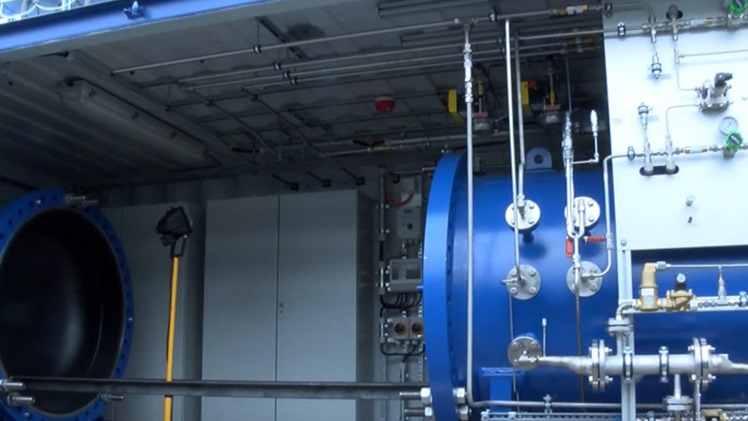Sven Longshanks
Daily Stormer
December 3, 2014

White people are the most (read:only) inventive people in the world, always coming up with new creations and innovations on what has gone before.
Germans are particularly clever and led the world in technical feats during the 10 years they had of National Socialism.
Along with magnetic cassette tape and jet engines, they also came up with design classics like the Volkswagen beetle, originally sketched out by Adolf Hitler.

Although currently under a hostile occupation, Germany is still a leader in the field of innovation [though America is better –Ed.], with the latest invention being a machine that changes water into gasoline.
RT:
The German company says it has developed an engineering installation capable of synthesizing petroleum-based fuels from water and carbon dioxide. The ‘power-to-liquid’ rig converts gases extracted from water into liquid hydrocarbon fuels.
“I would call it a miracle because it completely changes the way we are producing fuels for cars, planes and also the chemical industry,” Nils Aldag, Chief Financial Officer and co-founder of Sunfire GmbH told RT’s Ruptly video agency.
The Dresden-based company expects the technology to have a big impact on the future fuel market.
The electrically-powered installation uses a process known as Fischer-Tropsch Synthesis, first developed by German chemists Franz Fischer and Hans Tropsch in 1925.
The Fischer-Tropsch (F-T) reaction converts colorless, odorless, incombustible carbon dioxide gas (CO2) extracted from water, and hydrogen gas generated from water vapor, by electrolysis into liquid fuels such as diesel, jet kerosene and other chemical products.
The conversion process takes place in a series of reactors at temperatures between 150 and 300 degrees Celsius.
However, the F-T fuel technology “will always be more expensive” than getting conventional liquid hydrocarbon fuels from oil or coal, Aldag warned.“What is important is that the value creation happens at the place where you use the fuel,” he said. So there will be no crude oil transportation costs and expensive infrastructure. “You are producing the fuel right where you are actually going to use it,” Aldag stressed.
…
Sunfire believes the technology will be refined, and after obtaining regulatory permission they hope to offer it for commercial exploitation by 2016.
While Nils Aldag considers the technology has a bright future, the will to use it needs to gain momentum.
“I think in a very long time it will actually have an impact on geopolitics. What you always have to know is that the quantities that are required in these industries are so big that it would be difficult for such a technology to make a significant impact in a short period of time,” said Aldag.
 Daily Stormer The Most Censored Publication in History
Daily Stormer The Most Censored Publication in History


